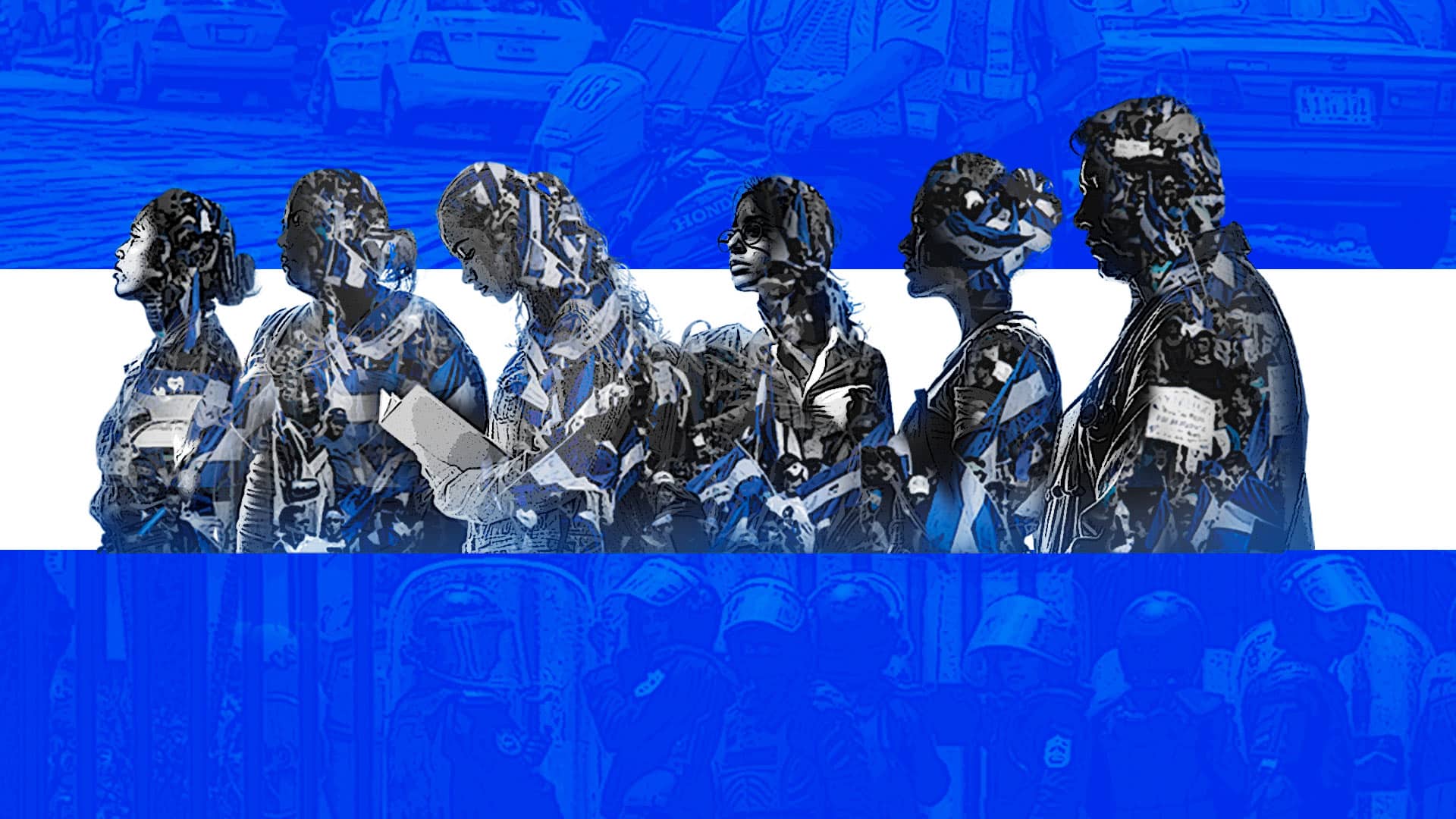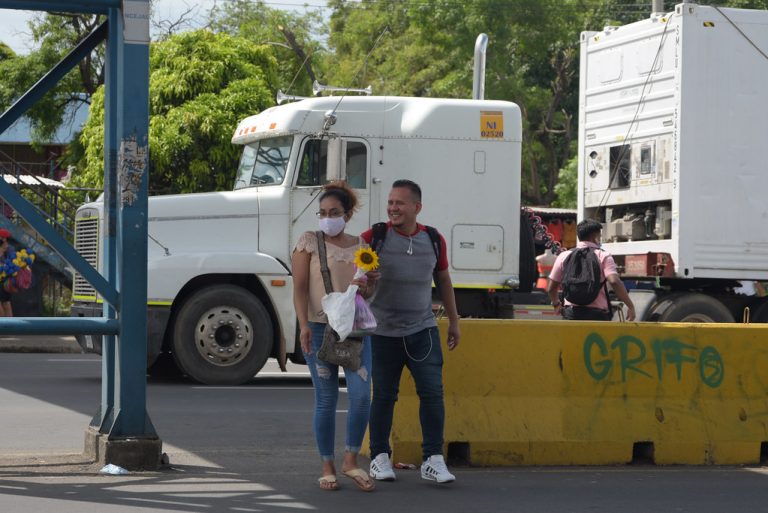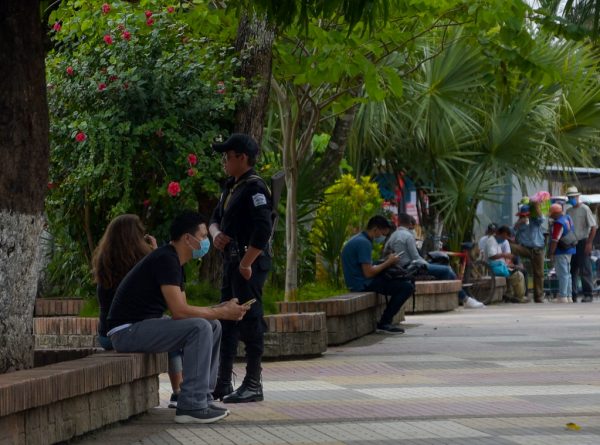25 de agosto 2020

Six Years With April in Tow: Life Under Nicaragua's New 'Normal'

PUBLICIDAD 1M
PUBLICIDAD 4D
PUBLICIDAD 5D
Despite the widespread notion that young people don’t get sick with Covid-19, unofficial data and testimonies demonstrate the opposite

These are the testimonies young Covid-19 survivors who got infected in different circumstances. One of them ended up in the hospital
Iskra Malespin, 22, felt like she couldn’t get enough oxygen. She ran to the front door of her house to try and get some air. Leaning against the door jamb, she passed out before the astonished gaze of her family. She didn’t know that she had come down with Covid-19 but would find out hours after that collapse.
The young girl had been afraid of getting the novel Coronavirus, but she didn’t think that the disease would leave her confined to a bed or possibly kill her. This idea is common among young people. They don’t believe they can get seriously ill or have complications from the illness like older adults can. However, unofficial data and cases like that of Iskra Malespin demonstrate the opposite.
She’s a university student, and in May, at the close of her quarter, she began to have migraines. She thought they were due to lack of sleep and the stress caused by the rush to turn in her final assignments. However, the headaches continued, accompanied by a sore throat, a temperature of 104⁰F (40⁰ C), and loss of appetite and smell.
On May 9th, the fourth day of these symptoms, she was sitting in the living room of her house when she felt sharp stomach pains and pressure in her chest that made her short of breath. That was the moment when she fainted in front of her family. Her hands went numb and her trachea “closed upon me”.
“I had symptoms like those of asthma, I lost my sight for an hour. I collapsed, but I continued struggling to breathe for nearly half an hour. My mother took a big risk and gave me mouth to mouth resuscitation until they could get me under a nebulizer,” the young woman recalls.
“At that moment, I nearly lost my life. I didn’t have time to think if I was going to die or not, only about how irresponsible I’d been in infecting my whole family,” she added.
In the evening of that same day, May 9th, they took Iskra to the health center of the Villa Libertad neighborhood. There she received a diagnosis of pneumonia and was sent home. However, an uncle of hers who was a doctor confirmed that she had the symptoms of COVID-19, and he gave her indications for home treatment. Her fainting spells continued.
Functionaries of the Ministry of Health (MINSA) came to Iskra’s house on several occasions for a medical check-up. On one occasion they told her that it wasn’t necessary for her to go to a public hospital. “Stay here; you have money, you can pay for a [private] hospital”, she was told. Iskra is a member of the “April 19th” opposition movement.

The Coronavirus can send you to the hospital for weeks and even kill you,” the World Health Organization warned young people back in March. Photo: Nayira Valenzuela / Confidencial
Although she had no underlying health conditions, the youth suffered from complications of Covid-19. “I was pale, with blue lips. My whole body was blue, my fingernails blue, and I had no feeling in my skin.”
On May 13, four days after her first collapse, she made an appointment to be seen at the [private] Bautista Hospital. Her oxygen level was 34% and she barely had a pulse. She wasn’t admitted because of the high cost at this hospital, and she was treated at home. Her relatives chipped in money to buy an oxygen tank, and she remained connected to it for 18 hours a day over a 15-day period.
In their August 12 report, the independent monitoring group “Citizens’ Covid-19 Observatory” registered at least 598 young adults between 20 and 29 as probably having had the novel Coronavirus. Within this segment of the population, they calculate, around seven have died from causes related to the pandemic.
The “Citizens’ Observatory” is made up of a network of doctors and volunteers who attempt to independently monitor and document cases of Covid-19 in Nicaragua. They currently report a total of 9,646 suspected cases and a total of 2,626 deaths of Nicaraguans whose symptoms indicated probable cases of the disease.
Although the unofficial statistics demonstrate a high percentage of young people who have fallen ill with COVID-19, Iskra Malespin believes that the majority of those infected keep quiet to “avoid being discriminated against.”
The youth affirms that she took all the preventive measures. She suspects that she caught the disease in the Eastern Market, which she visited on May 5th, with her friend Laleska Alvarez, 24. They were buying ingredients to complete some hygiene kits, to be distributed in the Managua streets and by the stoplights, as part of a citizens’ initiative organized by the student movements that oppose the government.
Laleska Alvarez began to develop the initial symptoms of Covid-19 at the same time as Iskra. She had a severe headache and she lost her sense of smell and taste. She sought help from a private doctor and she self-isolated completely in her room.
“One day I woke up with cold-like symptoms and a dry cough. From that moment on, I began wearing a face mask in my house, and I separated my plate, my glass, and my spoon. I was afraid I’d infect my mother who has high blood pressure and is diabetic,” explains the young woman.
Even though she didn’t suffer the same health complications as her friend, Laleska Alvarez did experience an attack of asphyxiation one morning. “I felt complete desperation. I couldn’t breathe. It was a horrible anguish. At that moment, I was afraid I’d lose my life.”
Laleska Alvarez was sick for about 20 days. “I didn’t get all the symptoms on the same day,” she notes. She’s been left with some long-term effects: she tires easily when walking long distances; physical activities are difficult for her; and she still has chest pains.
Last March, Tedros Adhanom Ghebrevesus, director of the World Health Organization, warned of the consequences if young people failed to heed the social distancing recommendations and began spreading the disease.
“Today I have a message for the youth: you’re not invincible. The Coronavirus can send you to the hospital for weeks and even kill you. Even if you don’t get sick, the decisions you make could mark the difference between life and death for someone else,” warned Adhanom.
National and international organizations and experts have cautioned that young people must take care of themselves, so as to avoid infecting the older people in their homes who are the ones most vulnerable to the pandemic. Nonetheless, in the case of Angel Rocha, 25, the story was the opposite: he was infected through contact with an elderly person who died from Covid-19.
He didn’t know that his girlfriend’s grandmother had the virus, although her symptoms – high fever, lack of appetite, fatigue – as well as the way she was buried – “they buried her in a plastic bag” – later led him to believe that she had died from Covid-19, according to the youth.
Four days after the elder woman’s death, Rocha began to have a headache, high fevers, bone and muscle aches, and loss of smell and appetite. These confirmed his theory that he had been infected with Covid-19.
He immediately isolated himself in his room. He didn’t go to any hospital, because he lives in a rural area, far from a medical center. The youth received telemedicine services from one of the independent physicians’ organizations.
Angel Rocha, Laleska Alvarez, and Iskra Malespin all saw Covid-19 as something that could affect them. They had taken minimal preventive measures, such as the use of facemasks and hand sanitizer. Nonetheless, after suffering a bout of the Coronavirus, they have adopted more extreme measures. Going out on the streets is no longer an option. Iskra Malespin notes: “It’s very boring being shut in at home. You feel like your life is passing by, that you’re not enjoying it. But we can enjoy it later on. It’s worse not to enjoy anything if you die.”
PUBLICIDAD 3M
Confidencial es un diario digital nicaragüense, de formato multimedia, fundado por Carlos F. Chamorro en junio de 1996.
PUBLICIDAD 3D